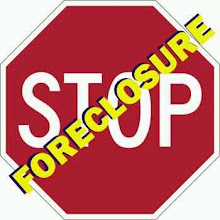http://www.nytimes.com/2010/09/30/business/30mortgage.html?src=mv
By DAVID STREITFELD Published: September 29, 2010
In a sign that the entire foreclosure process is coming under pressure, a second major mortgage lender said that it was suspending court cases against defaulting homeowners so it could review its legal procedures.
The lender, JPMorgan Chase, said on Wednesday that it was halting
56,000 foreclosures because some of its employees might have improperly prepared the necessary documents. All of the suspensions are in the 23 states where foreclosures must be approved by a court, including New York, New Jersey, Connecticut, Florida and Illinois.
The bank, which lends through its Chase Mortgage unit, has begun to "systematically re-examine" its filings to verify that they meet legal standards, a spokesman, Tom Kelly, said.
Last week, GMAC Mortgage said it was suspending an undisclosed number of foreclosures to give it time to take a closer look at its own procedures. GMAC simultaneously began withdrawing affidavits in pending court cases, throwing their future into doubt.
Chase and GMAC, in their zeal to process hundreds of thousands of foreclosures as quickly as possible and get those properties on the market, employed people who could sign documents so quickly they popularized a new term for them: "robo-signer."
In depositions taken by lawyers for embattled homeowners, the robo-signers said they or their team had signed 10,000 or more foreclosure affidavits a month.
Now that haste has come back to haunt them. The affidavits in foreclosures attest that the preparer personally reviewed the files, which those workers acknowledge they had no time to do.
GMAC and Chase say that their lapses were technical and will soon be remedied with new filings. But defense lawyers are seizing on these revelations and say they will now work to have their cases thrown out.
Beyond the relative handful of foreclosure cases being contested are many more in which the homeowner did not have legal counsel. Potentially, hundreds of thousands of cases could be in doubt.
GMAC's initial disclosures prompted challenges or investigations from attorneys general in Iowa, Illinois, Colorado, California and North Carolina. The Treasury Department, which became the majority owner of GMAC after providing $17 billion in bailout money, has directed the lender to correct its procedures.
The pressure on the lender, which began as the auto financing arm of General Motors, is continuing to increase. Senator Al Franken, Democrat of Minnesota, asked Wednesday for the Treasury, the Justice Department and other regulators to collaborate on "a thorough investigation into the alleged misconduct."
Defense lawyers have consistently complained that the lenders' law firms were sending through cases that were at best sloppy. The Florida attorney general's office says it is investigating four so-called foreclosure mills.
"The GMAC announcement was the mushroom cloud," said one Florida defense lawyer, Matthew Weidner. "The fallout will burn through the entire mortgage servicing industry."
Judges who oversee a lot of foreclosure cases increasingly agree that there is a serious problem.
"I don't want to say that every one of these cases is wrong and a fraud on the court, but it is a big concern for us," J. Thomas McGrady, chief judge of the Sixth Judicial Circuit in Florida, said in an interview last week after GMAC's announcement.
Judge McGrady predicted that the foreclosure process in Florida, which the Legislature has been trying to speed up, would have to slow down.
"Everyone is going to have to look at these cases more closely," said Judge McGrady, whose circuit includes St. Petersburg.
The foreclosure process in many states is already torpid. This benefits delinquent homeowners, who can live in their properties free for years, as well as lenders who do not have to write down the value of the original loan. But it also threatens to prolong the housing crisis for many years.
Chase said that unlike GMAC, it had not withdrawn any affidavits in pending cases. It also said that if foreclosures were completed, it was allowing its agents to proceed with the sale of the properties. GMAC has stopped its sales.
Chase followed the lead of GMAC in playing down the impact of the situation. "Affidavits were prepared by appropriate personnel with knowledge of the relevant facts based on their review of the company's books and records," the spokesman, Mr. Kelly, said.
But many questions are unresolved. One is whether completed foreclosures will be vulnerable to what GMAC is calling "corrective action." If those former homeowners press their claims, they could conceivably dislodge the new buyers.
Such cases are probably not imminent. The more immediate consequences for the lenders using robo-signers will be determined by the homeowners who are fighting their cases in court.
Lilliana DeCoursy, a real estate agent in Safety Harbor, Fla., has a rental property in foreclosure with GMAC. Now that the lender has withdrawn the affidavit in her case, Ms. DeCoursy said she was determined to press every advantage.
"I think they should have to answer for this," she said.
William Neuman contributed reporting.
Thursday, September 30, 2010
Subscribe to:
Post Comments (Atom)












No comments:
Post a Comment